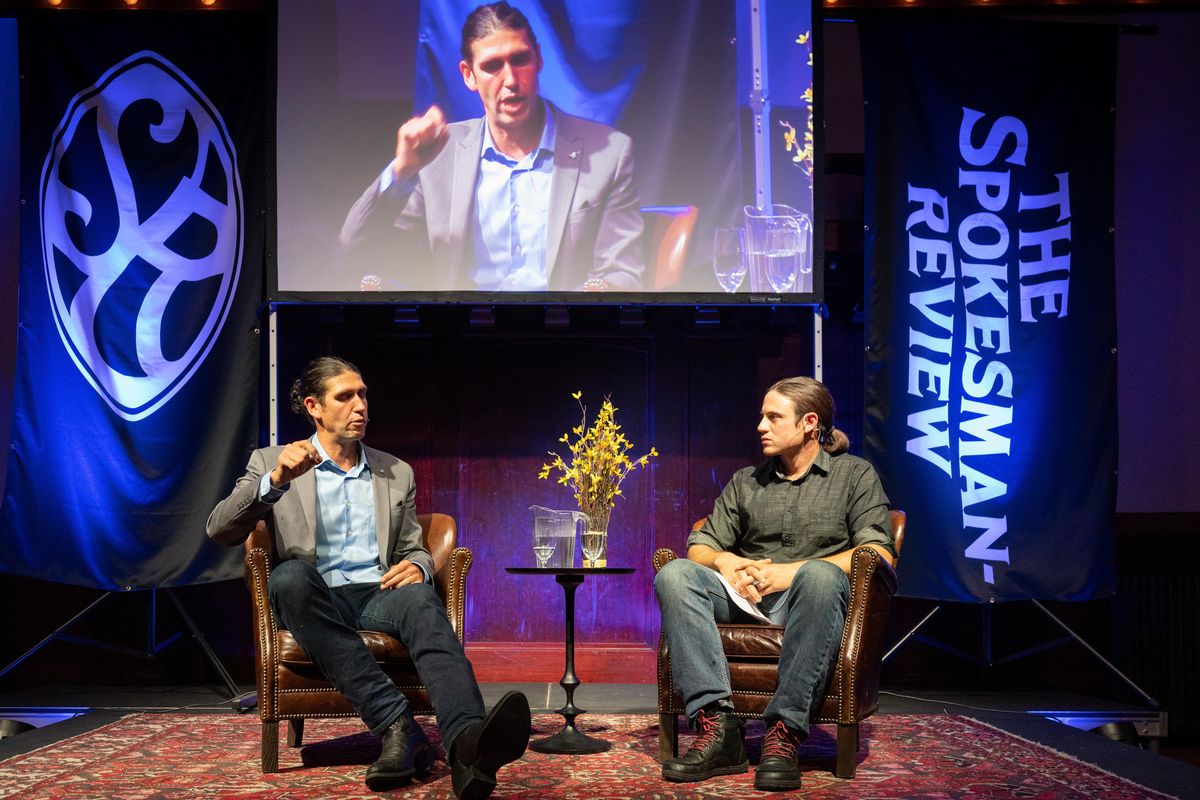Spokane-based environmental writer discusses beaver book with Northwest Passages crowd

Randy Greyerbiehl has seen what beavers can do to alter an ecosystem with his own eyes at his secret camping spot in Okanogan County.
“They have transformed the landscape,” Greyerbiehl said.
While Greyerbiehl started out camping near a small stream, he said he now pitches his tent in a green field surrounded by budding forest.
On Wednesday evening, Greyerbiehl was in the more crowded confines of the Montvale Event Center in downtown Spokane, but he still had beavers on his mind, as did the rest of the full house that gathered to hear Ben Goldfarb speak about his book “Eager: The Surprising, Secret Life of Beavers and Why They Matter.”
The discussion, part of the Northwest Passages Book Club and Community Forum, ranged widely but focused on how beavers act as ecosystem engineers to transform their environment and how they they engineered their own comeback from the brink of extinction.

Over time, beavers can take an area from pond to wetland to wet meadow to forest, Goldfarb explained. His interest in the animal led Goldfarb from writing a series of articles on the species for High Country News to penning his award-winning book on the subject.
As Goldfarb recalled to laughs from the crowd, one of the initial emails he received from his now publisher said, “You have a proud love of the beaver.”
After years of research, “Eager” was published, and Goldfarb headed to Spokane.
“One of the reasons I was excited to come here is because it’s a city that is very connected to the river and its beaver population,” Goldfarb said.
Jesse Tinsley
He quickly immersed himself in the conservation and outdoors communities in Spokane, where he met Spokesman-Review outdoors editor, Eli Francovich, who led the discussion Wednesday night.
With strong conservation advocacy in the area, including the work of the Lands Council, an organization that helps relocate beavers in the Inland Northwest, Goldfarb said Spokane is where he can “make the biggest impact.”
“One of the hard things about being a newspaper or magazine writer is you never really know what impact you’re making,” Goldfarb said.
However, with a book “they live in people’s rooms” and are often more authoritative and long-lasting, he said. That impact was evident in the people Goldfarb met Wednesday night.
Linda Jovanovich drove up from the small town of Palouse to hear Goldfarb speak.
Jovanovich had three beavers living on her land a while ago. At first she saw them as a nuisance but after checking “Eager” out of her local library, Jovanovich said she learned what they bring to the ecosystem.
While she had those three beavers relocated, she allowed a single beaver who took up residence in the stream on her property to remain.
The book made her feel like “I was OK wanting them there,” Jovanovich said.
She has worked with the Lands Council and hopes to keep this new beaver on her property.
“I’ve just built such an admiration for beavers,” Jovanovich said.
Before Goldfarb hit the stage, Jovanovich had him sign the library copy of “Eager” she checked out just for the occasion.
“We’ve never had a reference like this before,” Jovanovich said.
The science writing community seems to agree.
Earlier this year, Goldfarb won the E.O. Wilson Literary Science Writing Award from PEN America.
As an Alicia Patterson journalism fellow, Goldfarb has spent 2019 writing about the environmental impact of roads. The fellowship is supporting four articles that Goldfarb plans to turn into his next book.
“Right now, I’m trying to find the stories that will make the backbone of the book,” he said.